How to teach a puppy not to bite? Puppies can bite hard with their sharp teeth.
If there is something that all trainers talk about when teaching puppies, it is bites.
Ideally, prevent the puppy from biting as soon as possible. Those tiny, sharp teeth can easily stick to your skin and clothing.
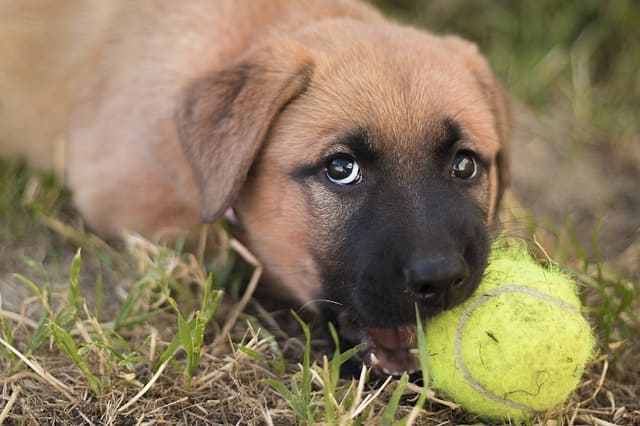
Teeth that will only come loose with great difficulty if they are hooked on the hands, which makes children and many adults a little wary of puppies.
Many breeders say that after the first two weeks, the dog will be happy because all the teeth are in place, but, how to teach a puppy not to bite?
There are endless questions on the subject of puppies’ teeth and bites. Why are the teeth so sharp? Why do puppies bite so easily and so badly? And most importantly: How do you teach a puppy not to bite? … Let’s shed some light on this issue.
How is a puppy taught not to bite?
Puppies are born without teeth, at first, a baby tooth appears that is then replaced by a permanent or adult tooth.
The first teeth to come in are canines and incisors and appear between 3 and 6 weeks of age. The rest of puppy teeth usually come out between 5 and 6 weeks of age. The teeth are real needles that stick in the skin and you will feel them a lot, sometimes with pain included.
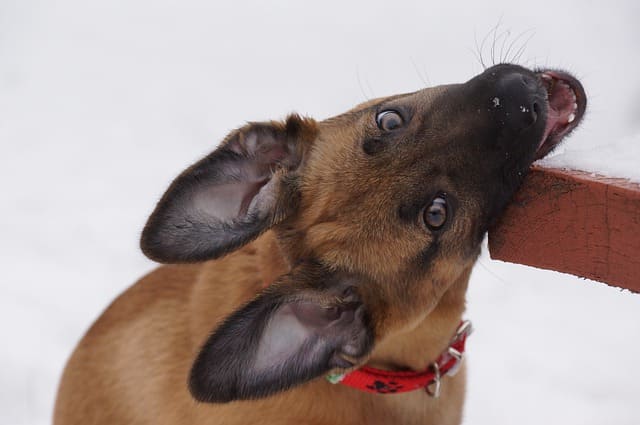
When the dog is 7 months old, all baby teeth have been replaced by permanent teeth. These “senior dog” teeth are not so sharp, so the contact with the skin is very different.
Why are puppies’ teeth so sharp?
When a puppy comes to our house, he will soon learn that he has very sharp teeth.
The teeth are lost around the time the mother weans them, then the puppy will slowly move into solid food.
Teeth are needed to process food, but they have another function. The puppy finds it difficult to drink because of the teeth, forcing the mother to interrupt the process of breastfeeding the puppy as soon as possible, removing it or letting it breastfeed less.
Another reason is that with these sharp needles, puppies learn to handle their tools: adult teeth. Puppies learn what it means to bite with their teeth in a different way.
At birth, puppies have learned to bite their siblings hard enough to react. If they bite too hard, the other members of the litter may bark or growl. If you can’t play kindly, don’t play.
Biting is learning
When you’re at home with your dog, it will also test your teeth.
Puppies discover the world with their mouths, so they bite all kinds of things. They need to learn how to manipulate those sharp teeth, and the main lesson (and most important at the time) is how much force they can and should use.
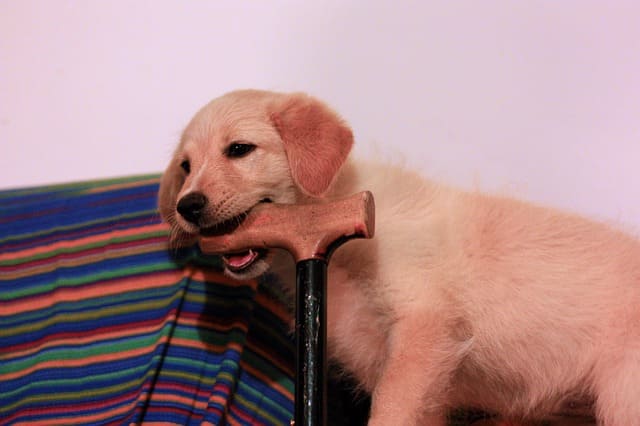
These sharp teeth will cause scratches, but combined with immature jaws and head muscles, they can’t cause serious damage (they can’t rip out a finger).
Despite the strength of the muscles, the bite produced by the puppy’s teeth can be quite serious for the recipient.
Reduce the consequences of bites
What if there are no consequences? In this case, most puppies react by biting harder or for longer.
The bite of a puppy is about finding a limit, you have to learn what is right and what is not. Therefore, it can be difficult to start a conversation with your puppy about bites. When you try to calm your puppy, he will always look for that limit and try to bite harder because, obviously, it is still allowed and possible.
Biting and hindering the bite
The consequences of a bite are important and puppies should learn from it. In the litter, if a brother bites too hard, the mother pushes him away from the group. When they play with us, puppies also seek to reach the limit.
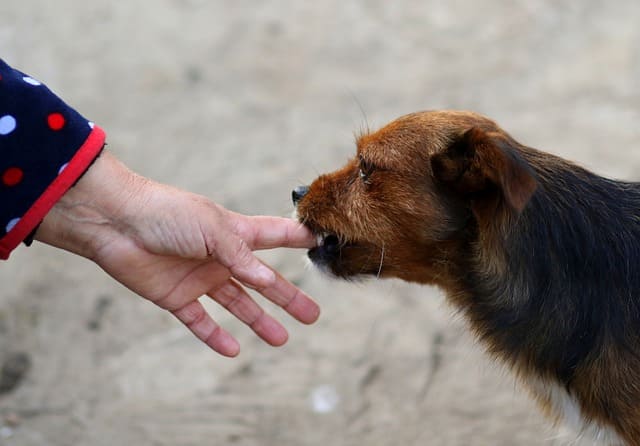
You should make these limits clear to your puppy by stopping play and walking away if he bites too hard. If you apply this method consistently, your puppy will know when he bites too hard.
The puppy’s bite
To teach your puppy to stop biting, you can follow these steps, making a classification of the hardness of the puppy’s bite and then you can start to relieve it.
- Level 4: Very strong, your skin will crack and there will be blood.
- Level 3: your skin will have marks, but there is no blood, although there is pain.
- Level 2: strong pressure.
- Level 1: Little or no pressure from the teeth on the skin.
Make sure your toy is everywhere and in a place you can easily reach. Toys should not be too small.
A stuffed toy is a better choice than a ball. For the first 5 days, it will only respond to bites that can be classified as level 4, you should say OH! (or any screaming), in a normal tone of voice, you get up and walk away from your puppy. Don’t talk to him, don’t yell at him, stay away from him.
After these first 5 days, you will notice that you will feel less level 4 bites, in this case, your response to a level 3 bite will be the same as level 4: you will say OHS!, and it will move away. If the puppy tends to bark or growl when you say “OHS!”, don’t say anything and walk away.
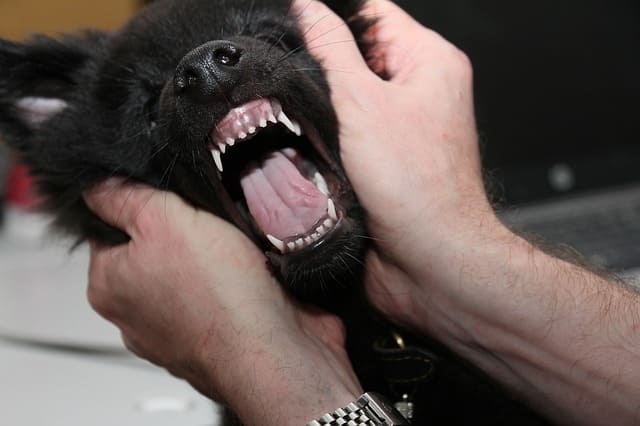
After 10 days you will notice that the level 3 bite will weaken, as will the level 4 bite, and now you should treat the level 2 bite in the same way. After two or three weeks you will notice that the puppy grabs your hand, arm or leg without pressure (level 1) and rarely pushes.
Follow this recipe consistently until your puppy bites only lightly
Maintain consistency
If you set the record straight and walk away from your puppy when he bites too hard, you’ll teach him to limit his biting behavior. You must have toys on hand for when your puppy bites lightly, to be able to use them as an aid to training.
The bite barrier is important so your puppy knows how hard he can bite you or others. It may seem a bit strange, but it’s an important lesson.
You can set the strong bite threshold lower and lower, or you can gradually teach your puppy to bite more and more gently, in this way, your puppy will learn to be very precise with his mouth and teeth and learn not to bite hard.
Once your puppy’s teeth have been replaced, he will simply grasp your hand or arm gently.
How long does this process take?
There is no set number of days, but lasts as long as necessary. Your puppy won’t always learn to bite gently in such a short time, but you should notice that he bites a little less often.
Puppies bite anything
Although it seems strange, we let the puppies bite, we just want the bite to be softer, why not teach your dog not to bite at all?
Dogs only have a limited number of tools: their front legs and teeth. From an early age, they learn to use their teeth in the way described above. By teaching them, for example, to grasp gently, they learn other dental skills, biting is one of them.
In case of emergency, a very frightened or distressed dog may bite hard. This is part of normal dog behavior and teaching a puppy to bite is actually a safety mechanism. Dogs who have been taught a specific biting brake know they can be strong and bite things.
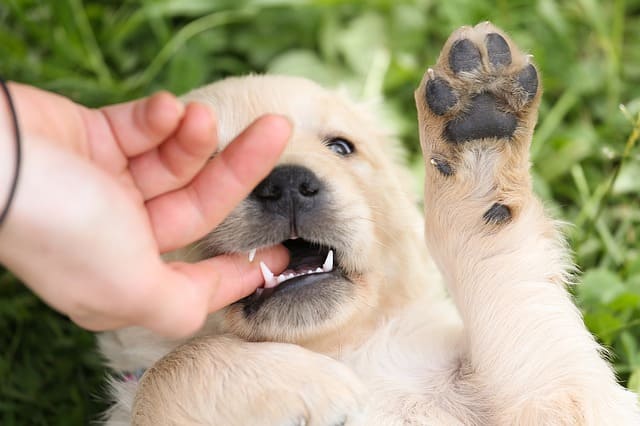
If a dog has been taught to bite or grasp gently, even with a startle reaction, it is more likely to bite and be yelled at.
He or she may grab your arm or hand, but he or she may also let go immediately. Of course, this is still painful, but it won’t hurt as much as if your dog hasn’t learned to bite.
What if the puppy keeps biting?
Some puppies are stubborn or excited and can’t stop, so they will chase you and grab your pants, shoelaces, or any garment. There are many ways to solve this problem and they will definitely help your puppy to stop biting.
Management
You can make sure to install passage doors in the openings of your kitchen or a hallway, go through it yourself and leave the puppy on the other side.
The idea is to make sure the puppy has a timeout. This eliminates the possibility of the puppy latching onto your clothes or lurching around like a tornado, this is where your puppy can churn and feel restless.
A timeout should be a couple of minutes, in which your puppy has time to calm down and you, as the owner, do the same.
Sometimes puppies have a moment of absolute madness, some just run and play, and that’s fine, but with some puppies, it’s a totally different story. They can go completely crazy and hang on your pants or arms nonstop.
Weariness
When your puppy doesn’t seem to be available in the late afternoon, the most likely cause is tiredness. Daylight hours are the longest for a puppy and he has already done many things.
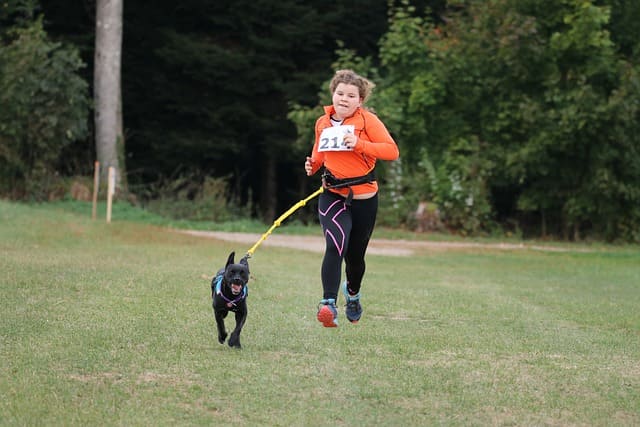
Not all puppies get enough sleep during the day and, for many, the action in the house begins at 1 or 3 in the afternoon or when your child arrives and gives him play, each dog is a world.
When there is too much stimulation, biting training will be of no use.
How to teach a puppy to bite: what to do and what not to do
Do not punish him, there are several solutions that are not appropriate for teaching puppies to bite, if the solution is to apply painful stimuli to the puppy, then this solution is inappropriate.
Solutions are also not appropriate if they involve pinching your mouth or even your body, remember that puppies have to learn everything.
Also, when they play with other dogs, they learn to push, pull and bite hard, with us as peers and colleagues, it’s no different. Puppies are learning and that learning doesn’t have to come with pain.
Don’t play with your puppy until he’s learned to bite well. These games can lead to frustration on both sides when the puppy is not yet ready to stop biting.
Hard play, like fighting, is fun when the adult dog understands the bite brake, then he will strive to make the game fun for both parties and keep it that way.
Choose the right toys
Use a large or long toy so that the puppy learns to bite the toy instead of you during play.
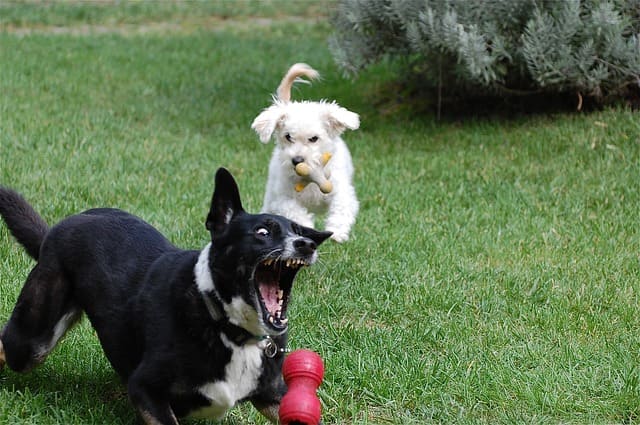
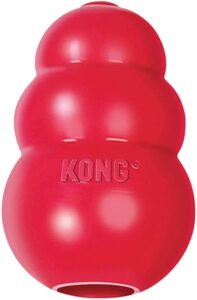
Watch your child
Do not let children play with the puppy unsupervised, the puppies bite too hard, and the children cannot position themselves properly.
In a state of agitation, the puppy will not be able to cope or learn to bite the brakes, the child will cry and the puppy will probably take the blame because he is a baby and still has to learn everything.
Teach the puppy to bite well without creating a situation where he quickly becomes confused in the learning process.
Do you help us share?

Dog care
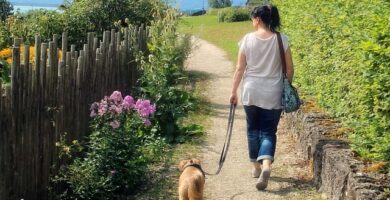
How to make walking with dogs fun
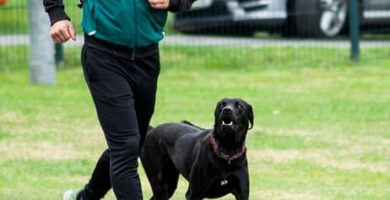
How your dog can help you physically and mentally
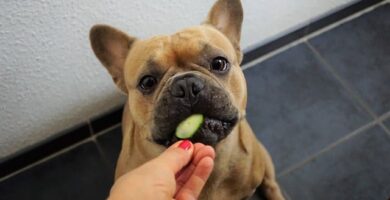
Fruits and Vegetables for Dogs
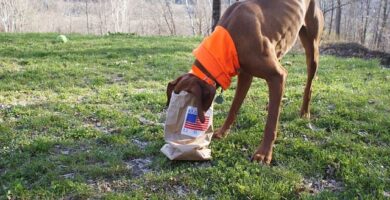
My dog ate a plastic bag
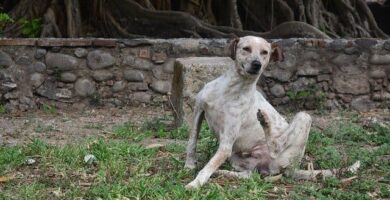
Ticks on dogs how to remove them
- Why do dogs bury bones? - January 2, 2023
- How long is a dog’s pregnancy? - December 24, 2022
- Why do dogs mark territory? - October 24, 2022
